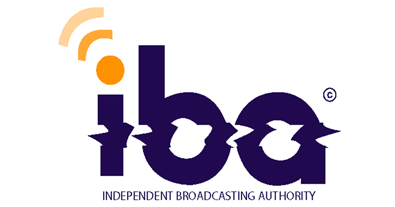Religious Content Service Providers
The programming provided by a religious broadcasting service shall reflect the religious beliefs and needs of the people and shall:
1. Provide a community broadcasting service dealing specifically with religious issues
2. Be informative, educational and entertaining
3. Focus on the provision of programmes that highlight grassroot community issues including, developmental issues, health care, basic information and general educational and environmental affairs and other spiritual matters
4. Promote the development of a sense of common religious purpose and improve quality life
Part V of the IBA Act (2002) Section 33 provides the minimum professional standards for the journalism profession, stating that “The corporation and every licenced broadcasting service, shall develop a code of professional standards which shall comply with the following minimum requirements:
1. Respect for the human dignity and human rights and freedoms, and contribution to the tolerance of different opinions and beliefs
2. Comprehensive, unbiased and independent news broadcast and current affairs programmes with commentary clearly distinguished from news
3. Observance of procedures for correcting factual errors and redressing unfairness
4. Observance of the principle of the right to reply
5. Protection of the integrity of minors by clearly classifying and distributing programmes that could endanger the development of a child
in a way with the least possibility for a child to use it
6. Clear separation of advertisements from other programme outputs.
For more information, please refer to the Standard Operating Procedures for Broadcasting document .

